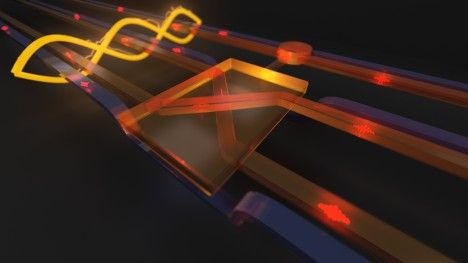A team of researchers from the University of Manchester announced Monday they had taken a significant step forward in the creation of viable quantum computers. In a study published in the latest edition of the journal Chem, the researchers provided evidence that large molecules made of nickel and chromium could be used as qubits — the quantum computing equivalent of the bits used to store and process information in conventional computers.
According to the study, it is possible, at least in theory, to use molecular chemistry to connect these molecules, thereby creating several stable qubits that can then be used to create two-qubit logic gates.
“We have shown that the chemistry is achievable for bringing together two-qubit gates — the molecules can be made and the gates can be assembled,” lead author Richard Winpenny said in a statement. “The next step is to show that they work.”
